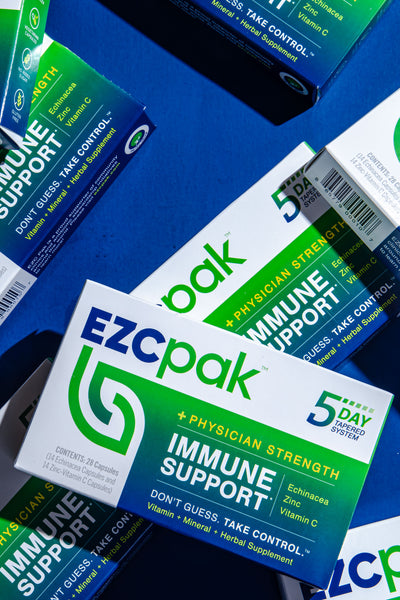Overexertion and Overtraining May Be Linked to Compromised Immunity
We’ve all been told that exercise will make us thinner, happier, and healthier. It improves sleep, regulates appetite, and releases endorphins. But what happens when exercise far and away exceeds the 150 minutes of moderate of 75 minutes of vigorous exercise American adults need every week? Can all that extra exercise actually make us sicker?
In this article, we’ll review a couple studies of how overexertion affects immunity, but how regular exercise may boost it.
One Study Indicates Overexertion Reduces Immunity
A 2017 study tested the immunity of 64 health males through a controlled experiment. The men were asked to run at one of the following paces for the specified amount of time: half an hour at moderate intensity, half an hour at high intensity, two hours at moderate intensity. Some men did not run at all, as they were in the control group. These men sat and rested.
The findings? The shorter spurts of exercise -- whether high intensity or not -- did not affect the men’s immunity. That 120 minute run; however, did reduce their ability to fight infection.
Other Studies Indicate Possible Link Between Overexertion and Illness
Another study conducted with participants in the grueling Los Angeles Marathon demonstrated a possible link between overtraining and illness. The research found that for every seven runners who completed the race, one fell ill in the following weeks. Research also found that runners who ran more than 60 training miles a week for the two months prior to race day were twice as likely to get sick as those participants who ran only 20 training miles a week.
Yet Regular Exercise Might Boost Immunity
Don’t think the above findings excuse you from hitting the gym or taking that yoga class. While there’s no definitive proof that moderate exercise boosts immunity, there’s reason to believe it might.
The U.S. National Library of Medicine includes the following as theories about how exercise might boost immunity:
- Exercise may help remove bacteria from your lungs and airways
- Exercise cause changes in antibodies and white blood cells that may help fight diseases
- Exercise may cause a brief increase in body temperature that may help prevent bacteria from growing
- Exercise reduces the release of stress hormones that may increase chances of illness
Plenty of Benefits of Reasonable Exercise Regimen
Even if moderate exercise doesn’t boost immunity, it’s great for your overall health. Here are five of the top reasons to break a sweat daily, according to the Mayo Clinic:
- Exercise helps maintain and control weight
- Exercise helps manage conditions like diabetes, depression, and high cholesterol
- Exercise improves mood and helps manage anger and stress
- Exercise increases energy and helps you use oxygen more efficiently
- Exercise improves sleep quality and can help with conditions such as insomnia
Break a Sweat -- But Listen to Your Body
Whether you’re training for a marathon or going for a leisurely bike ride, it’s important to listen to your body. If you’re not feeling up for it, or your body is telling you it needs a break, it might be worth taking a day off. If you don’t feel well, try to cut back on training.






